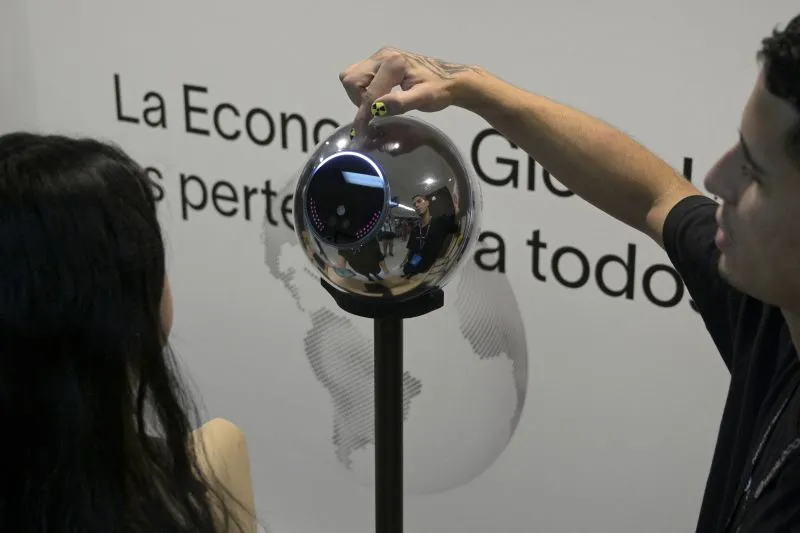Worldcoin: Revolutionizing Identity Verification in the Cryptocurrency Landscape

Worldcoin: A New Era of Identity Verification
Worldcoin, spearheaded by Sam Altman, has introduced a groundbreaking concept aimed at leveraging cryptocurrency to revolutionize identity verification. With the rise of artificial intelligence and the potential growth of AGI (Artificial General Intelligence), the project utilizes unique biometric data gathered through specialized devices called orbs to ensure that only humans can participate in the digital economy. This innovative digital passport system, known as World ID, promises to guarantee human authenticity online.
How Worldcoin Works
- Iris Scanning: At the center of Worldcoin is the orb, a handheld device that captures an individual's iris pattern, converting it into a secure numerical code.
- Unique Identification: Worldcoin claims that iris patterns provide the most reliable biometric measure for distinguishing humans from bots.
- Data Security: The project ensures privacy by anonymizing data and deleting the iris images immediately after verification.
- Universal Basic Income: Looking to the future, Worldcoin envisions utilizing the digital IDs to distribute installments of its cryptocurrency, fostering a potential universal basic income.
Worldcoin and Regulatory Challenges
Despite its ambitious goals, Worldcoin has faced significant regulatory hurdles. The project has experienced setbacks in various countries while also achieving positive milestones, such as a memorandum of understanding in Malaysia. The co-founder, Alex Blania, emphasizes the importance of continuous dialogue with governments to mitigate regulatory frictions as the project develops.
Engaging with the Future of Identity and Economy
Worldcoin represents a proactive approach addressing the complexities of human identification in an increasingly AI-driven world. By creating a secure, biometric solution, Worldcoin aims to establish a trustworthy method of verifying humanity in online transactions and social interactions. In a future where AGI becomes prevalent, such innovations may be essential to ensure ethical engagement in the digital realm.
This article was prepared using information from open sources in accordance with the principles of Ethical Policy. The editorial team is not responsible for absolute accuracy, as it relies on data from the sources referenced.